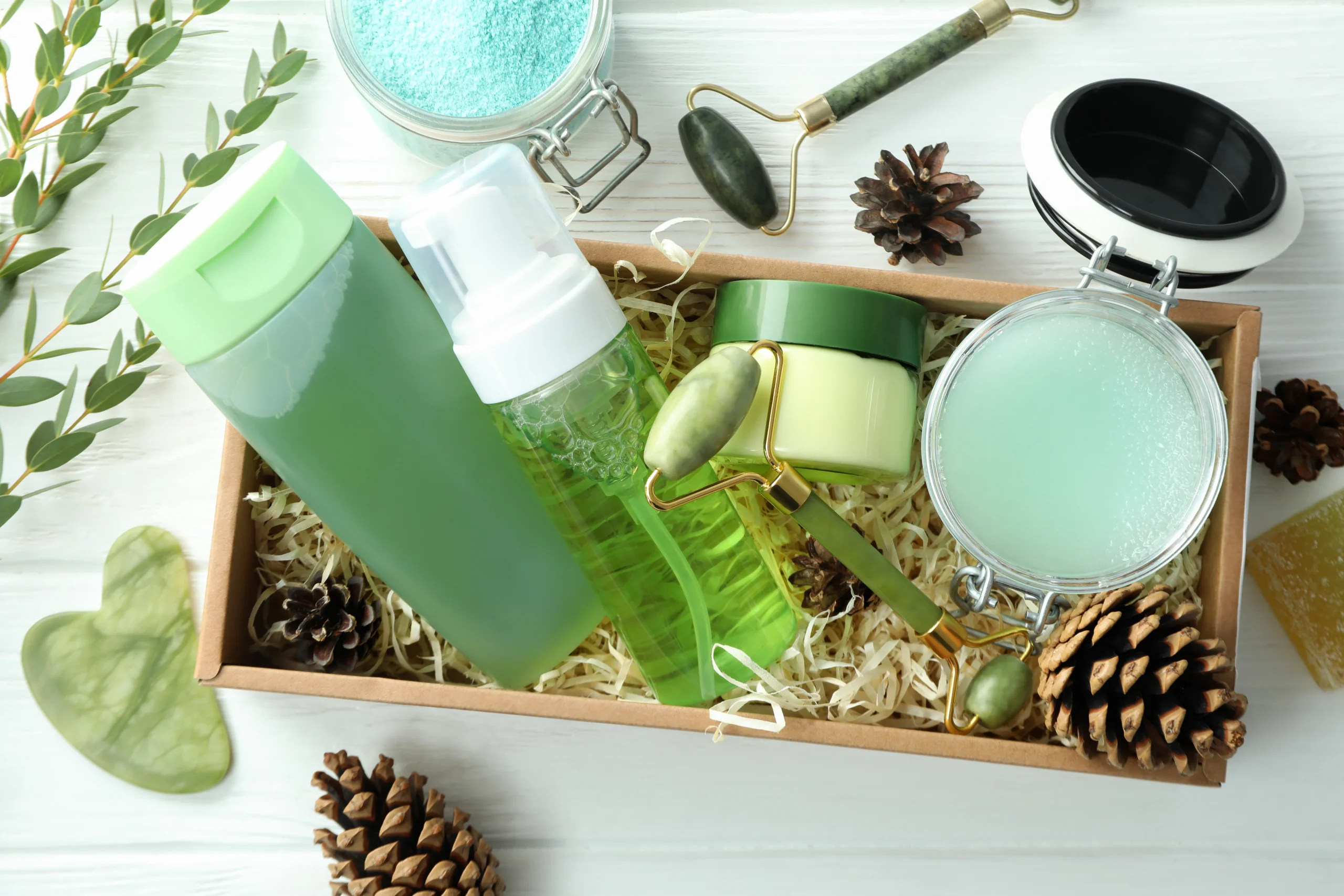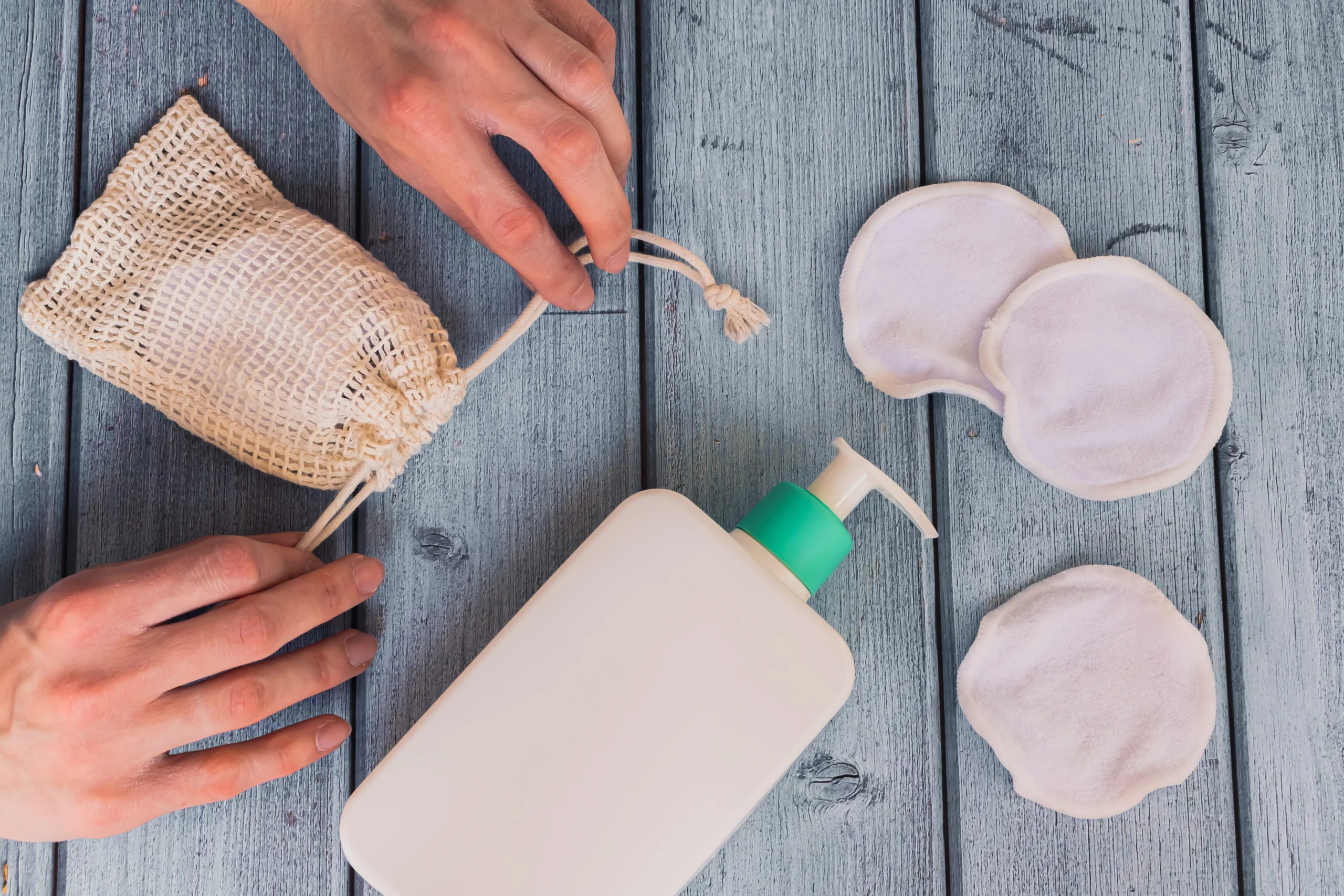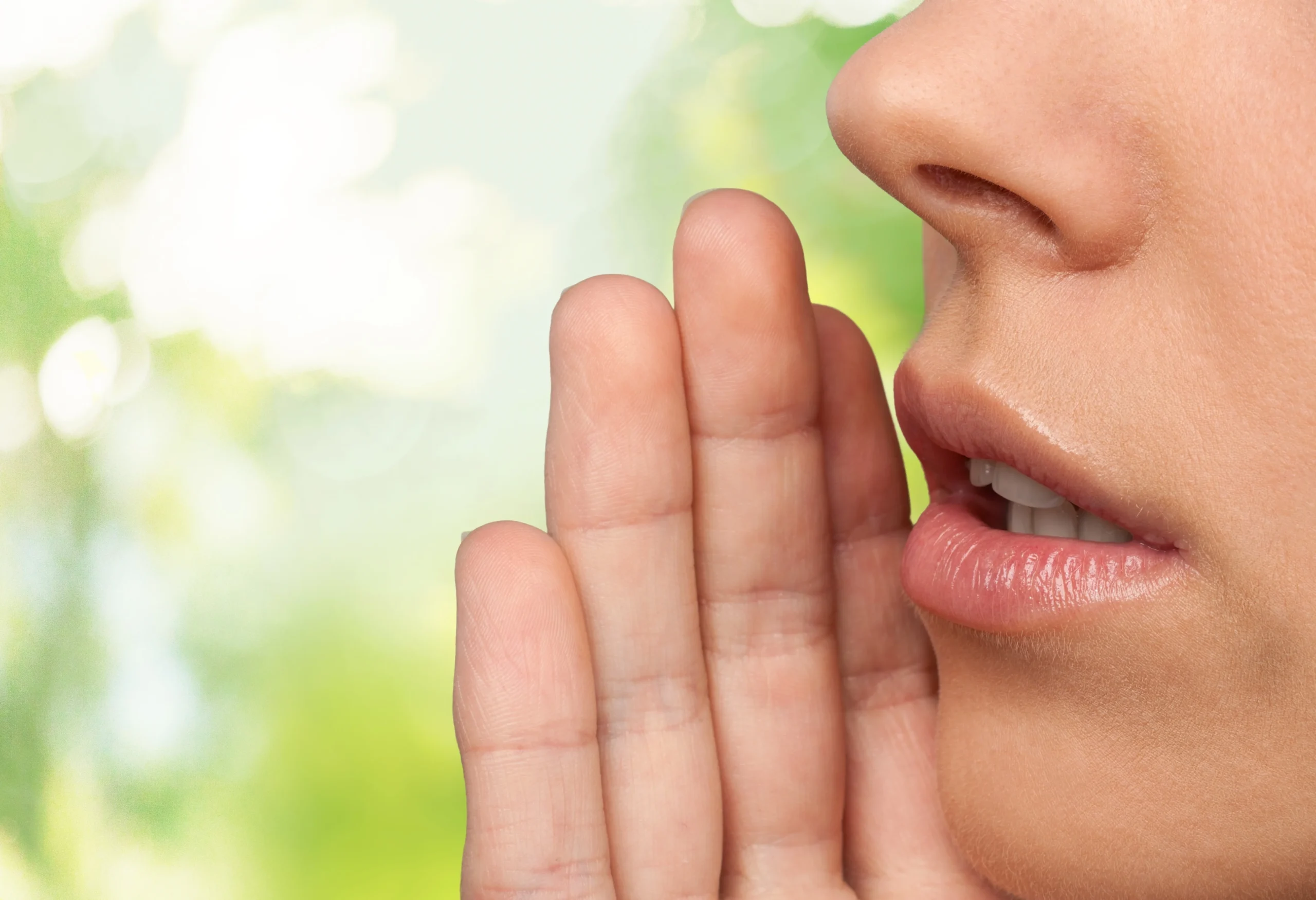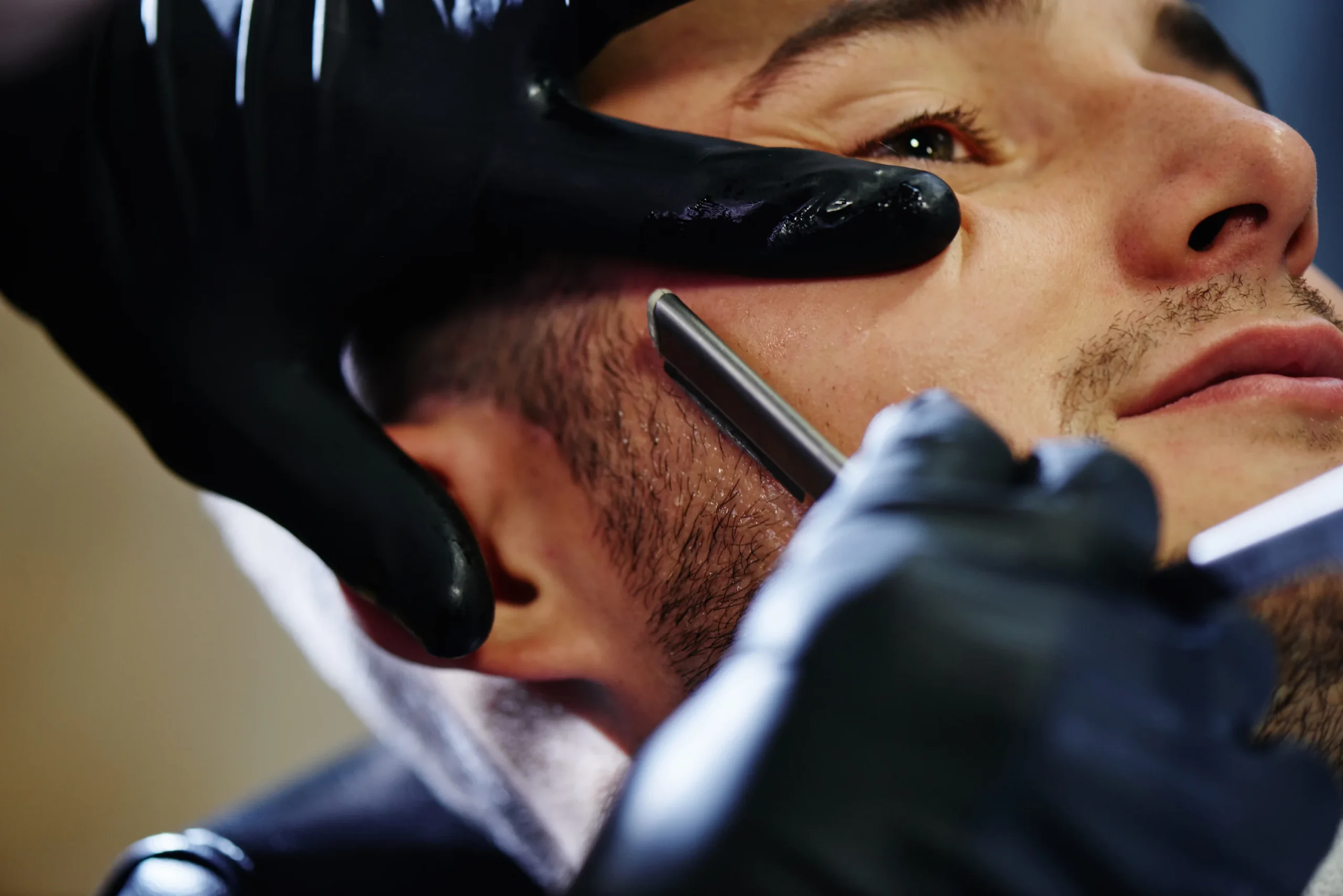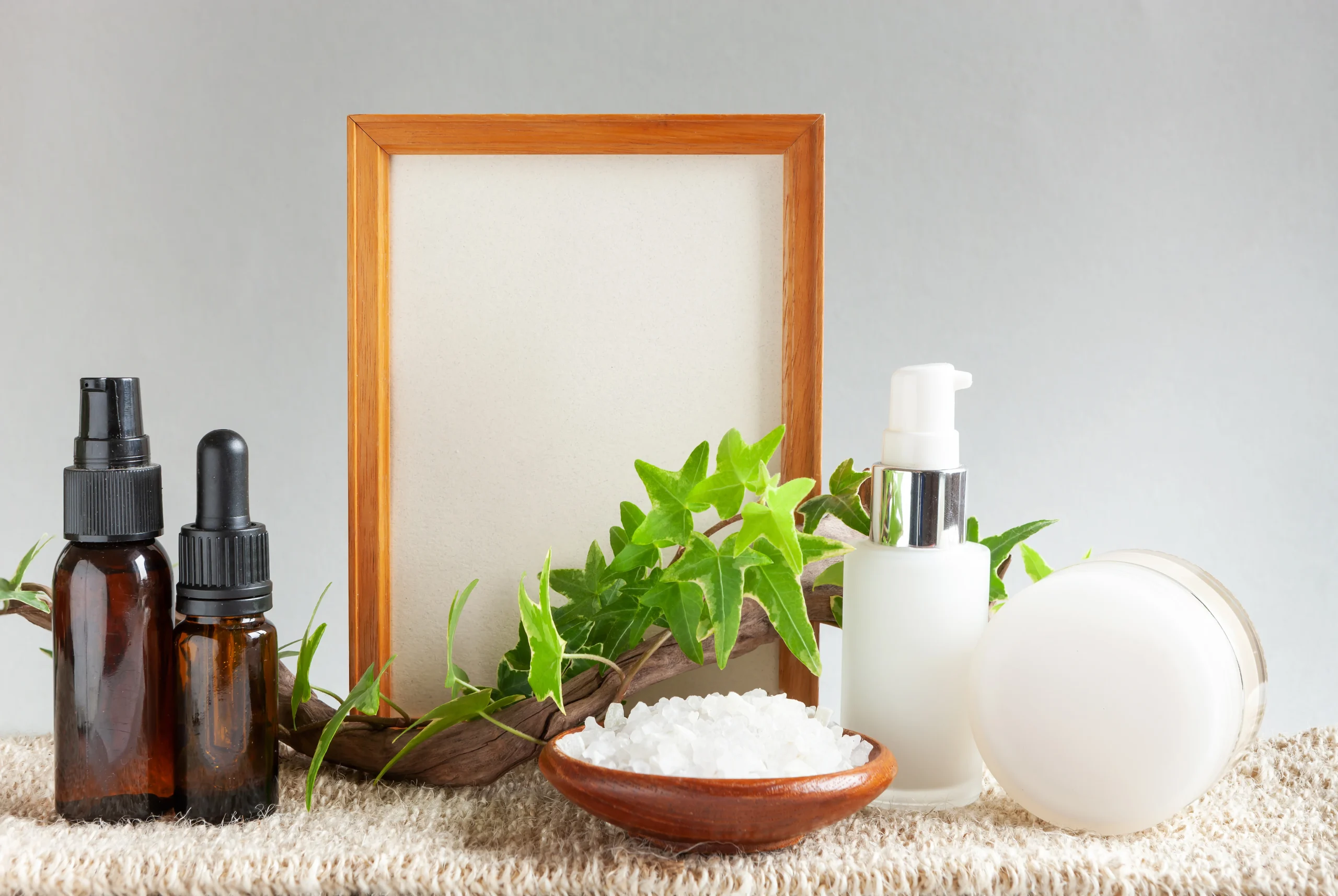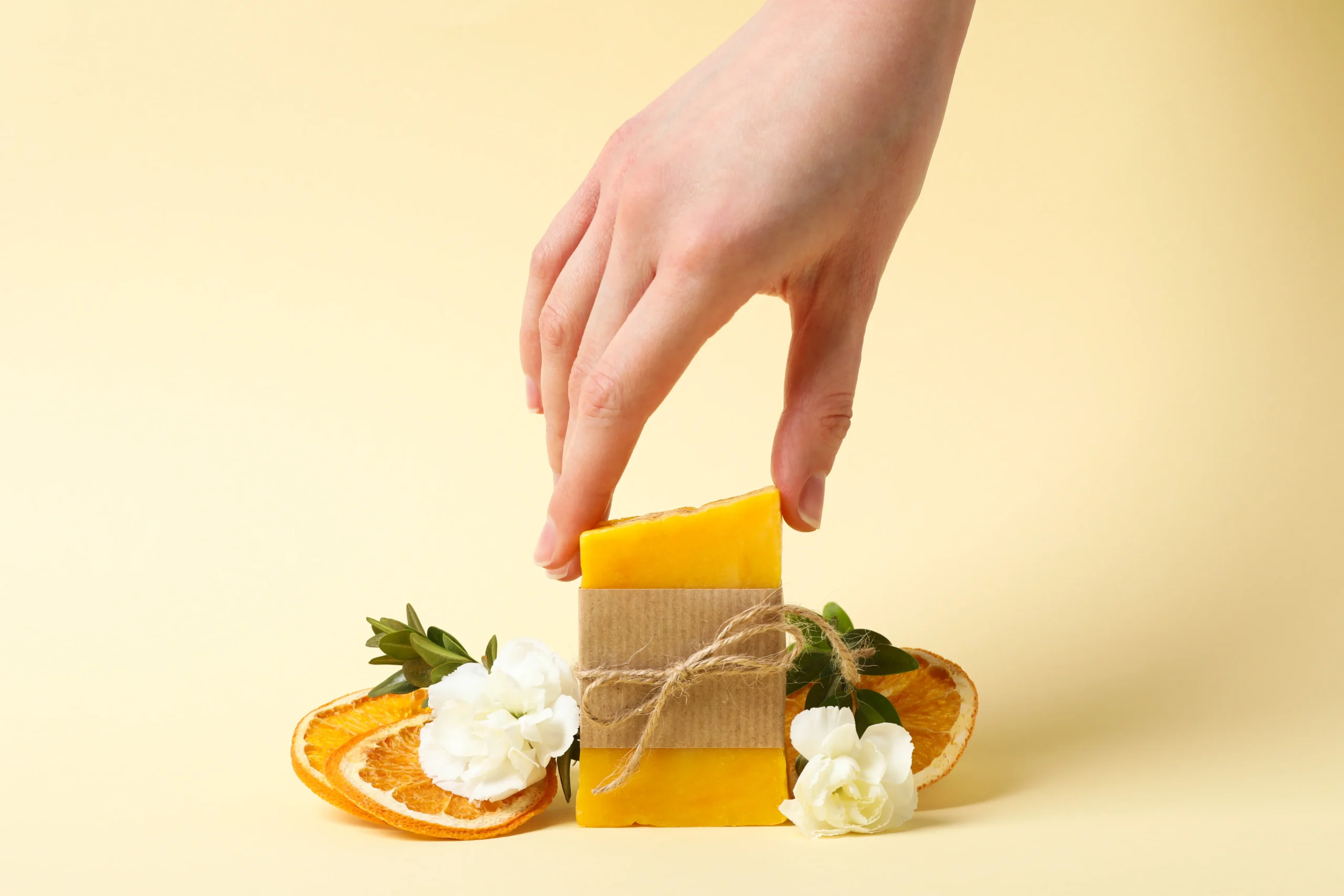Understanding The Importance of Feminine Hygiene
Feminine hygiene is an important aspect of women’s health. Using essential Oils for Feminine hygiene can be a natural and practical approach to this area. Although the vagina and vulva are very sensitive and self-regulating, they can easily become irritated, infected, or imbalanced without proper care. Conventional cleaning products often contain artificial fragrances and harsh chemicals, which can sometimes cause adverse health effects. Many women are now turning to natural alternatives, particularly essential oils.
Using the right essential oils can help maintain the vaginal area’s pH balance, soothe irritation, eliminate odor-causing bacteria, and provide a refreshing sensation without disrupting the body’s natural microbiome. However, improper use can cause skin irritation and allergies or worsen existing problems. Therefore, it is essential to thoroughly understand the benefits and safe usage of these oils before using them.
Essential oils have been used in various cultures for medicinal and aromatic purposes from ancient times to modern healing practices. In personal care, the antifungal, antibacterial, and anti-inflammatory properties of these oils can play a crucial role in preventing and alleviating issues such as vaginal infections, itching, and unpleasant odors. This article will explore how to use essential oils, which oils are the safest and most beneficial, and how to incorporate them into your daily care routine properly.
Safe Ways To Use Essential Oils For Women’s Health
When using essential oils, it is necessary to consider the mixing ratio, application method, and individual skin sensitivity. Since they are very thick and strong liquids, they are not recommended for direct application to the vaginal area. The mucous membranes of the vaginal area are very sensitive; even the slightest misapplication can cause severe irritation or inflammation.
Essential Oils: Why A Natural Alternative?
Many women are now avoiding artificially scented soaps or cleansers, as they can disrupt the natural balance of flora and bacteria. Essential oils are a plant-based alternative rich in antibacterial, antifungal, and anti-inflammatory properties. These properties make them safe to use in the vaginal area, especially when mixed properly.
Tea, lavender, chamomile, and calendula are some of the most commonly used essential oils for women’s health. These oils are widely recognized in herbal and naturopathic medicine. They relieve skin inflammation, kill harmful bacteria, and promote healthy cell regeneration.
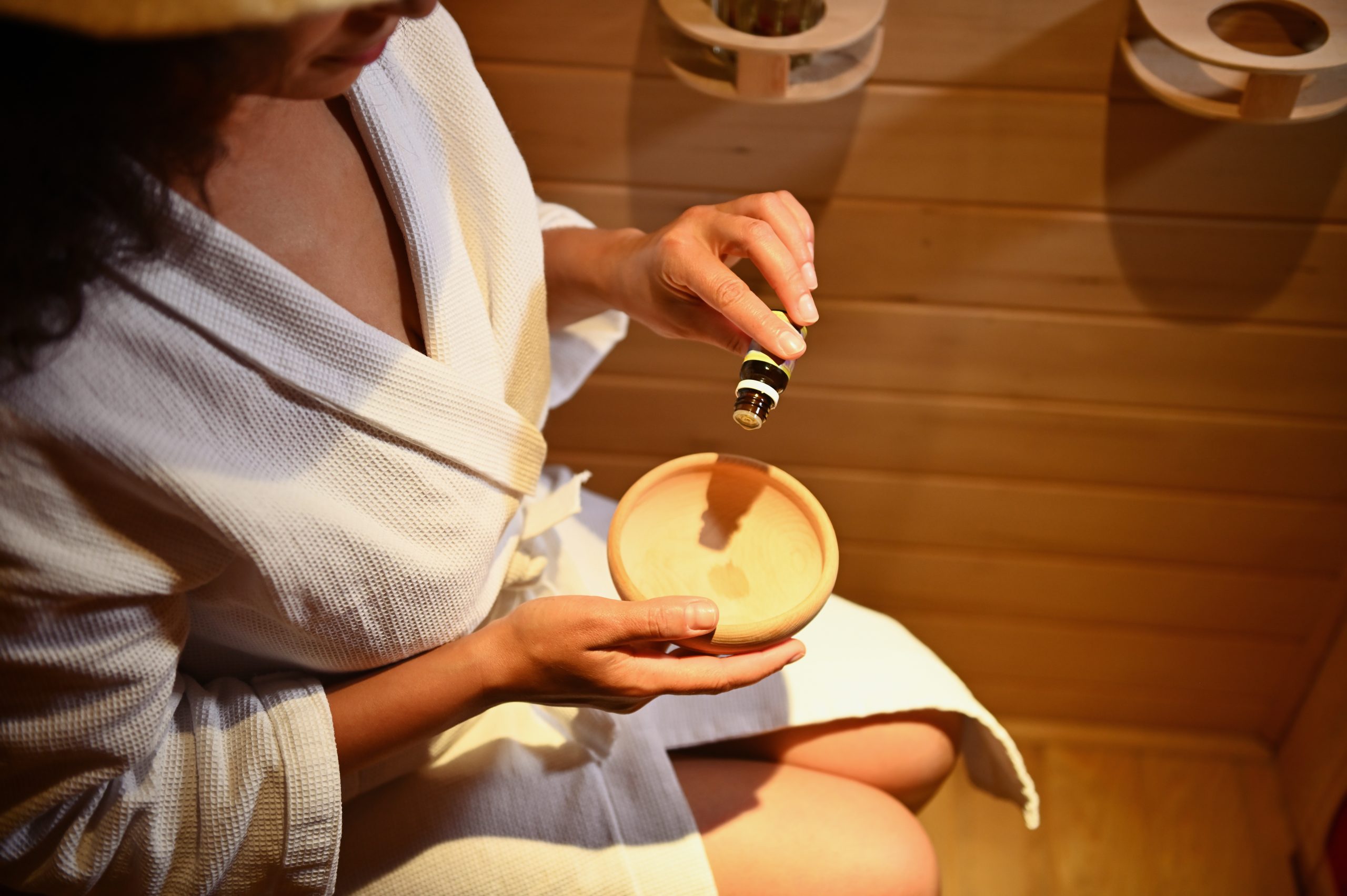
Some Important Precautions Before Use
If you are considering using essential oils for feminine hygiene, be sure to follow these guidelines:
- Mix it with a carrier oil, such as coconut, jojoba, or almond oil.
- Before use, do a patch test. Apply a small amount to your arm or inner thigh to check for allergic reactions.
- Never use it inside the vagina. Use only on the external vulva or mixed with water as a sitz bath or feminine wash.
- Please do not use it during pregnancy unless advised by a doctor.
- Use pure and organic oils. Avoid oils that are inexpensive or contain artificial ingredients.
If you follow these guidelines, essential oils can be a safe, comfortable, and natural way to protect women’s health.
Best Essential Oils for Women
Not all essential oils are equally effective, particularly when applied to sensitive areas of the skin. Let’s examine some of the best oils, their benefits, and how to use them safely.
Tea Tree Oil And Its Antibacterial Properties
Tea tree oil is the best-known essential oil, effective in fighting bacterial and fungal infections. Its powerful antimicrobial and antifungal properties have made it popular for treating yeast infections, bacterial vaginosis, and odor control. Mix two drops with a tablespoon of coconut oil to topically use tea tree oil. It is also used in natural applications, such as topically applied natural washes or baths.
Lavender Oil: Relieves Irritation And Discomfort
While lavender oil is popular for its enchanting scent, it is also an excellent skin soother. Its anti-inflammatory and antibacterial properties benefit women, especially when they are experiencing itching, burning, or discomfort. Adding a few drops of lavender oil to a warm sitz bath can be soothing, or you can use it as a light DIY spray. It also brings peace of mind, which is why it is called a “double-benefit oil.”
Chamomile Oil: For Sensitive Skin Care
Mile, especially, is a very gentle essential oil. It is suitable for individuals with sensitive skin or those who frequently experience irritation or itching. Chamomile oil soothes inflammation and reduces itching and works well in sitz baths or when applied topically in carrier oil.
Coconut Oil: Safe Carrier Oil
Although coconut oil is not essential, it still plays a role in feminine hygiene. It is rich in antibacterial and moisturizing properties, providing a safe base for mixing other oils. Coconut oil can also be used alone to help relieve vaginal dryness and irritation that may occur after shaving or waxing.
Some Homemade Recipes For Feminine Hygiene
Once you understand the safety and benefits of using essential oils, you can create some practical recipes at home. The recipes below are simple, gentle, and valuable, giving you complete control over the ingredients used in sensitive areas.
Natural Feminine Wash With Essential Oils
Many feminine wash products on the market contain sulfates and parabens, which can disrupt the pH balance. So, it’s better to use homemade washes.
Required Ingredients:
- 1 Cup of pure water
- 1 Tablespoon organic castile soap (unscented)
- 1 Teaspoon coconut or jojoba oil
- 2 Drops of tea tree oil
- 2 Drops of lavender oil
How to Use Essential Oils for Feminine Hygiene:
Mix all ingredients in a sterile pump bottle. Shake well before use. Apply a small amount externally, rinse well, and dry. Do not use more than once daily to avoid disturbing the natural flora.
This wash helps prevent bacteria, eliminate odor, and keep you feeling clean and fresh all day long.
Vaginal Steaming With Essential Oils: Effective Or Not?
Vaginal steaming, also known as “yoni steam,” is an ancient practice in which women sit in a tub of steaming water to allow the benefits of herbs or essential oils to penetrate the body. Although its effectiveness is scientifically debated, many women claim it reduces menstrual discomfort and maintains vaginal health.
How To Steam Safely:
- Boil 4 cups of purified water.
- Add one drop of chamomile and one drop of lavender oil.
- Let cool slightly (sitting in boiling water is dangerous).
- Steam for 10-15 minutes, but avoid direct contact with the water.
Be sure to consult a health professional before trying this method, especially if you have an infection, are pregnant, or have recently given birth. Avoid strong essential oils, such as mint or oregano.
Vaginal steaming is a traditional wellness practice that, when done correctly and in moderation, can complement women’s health.
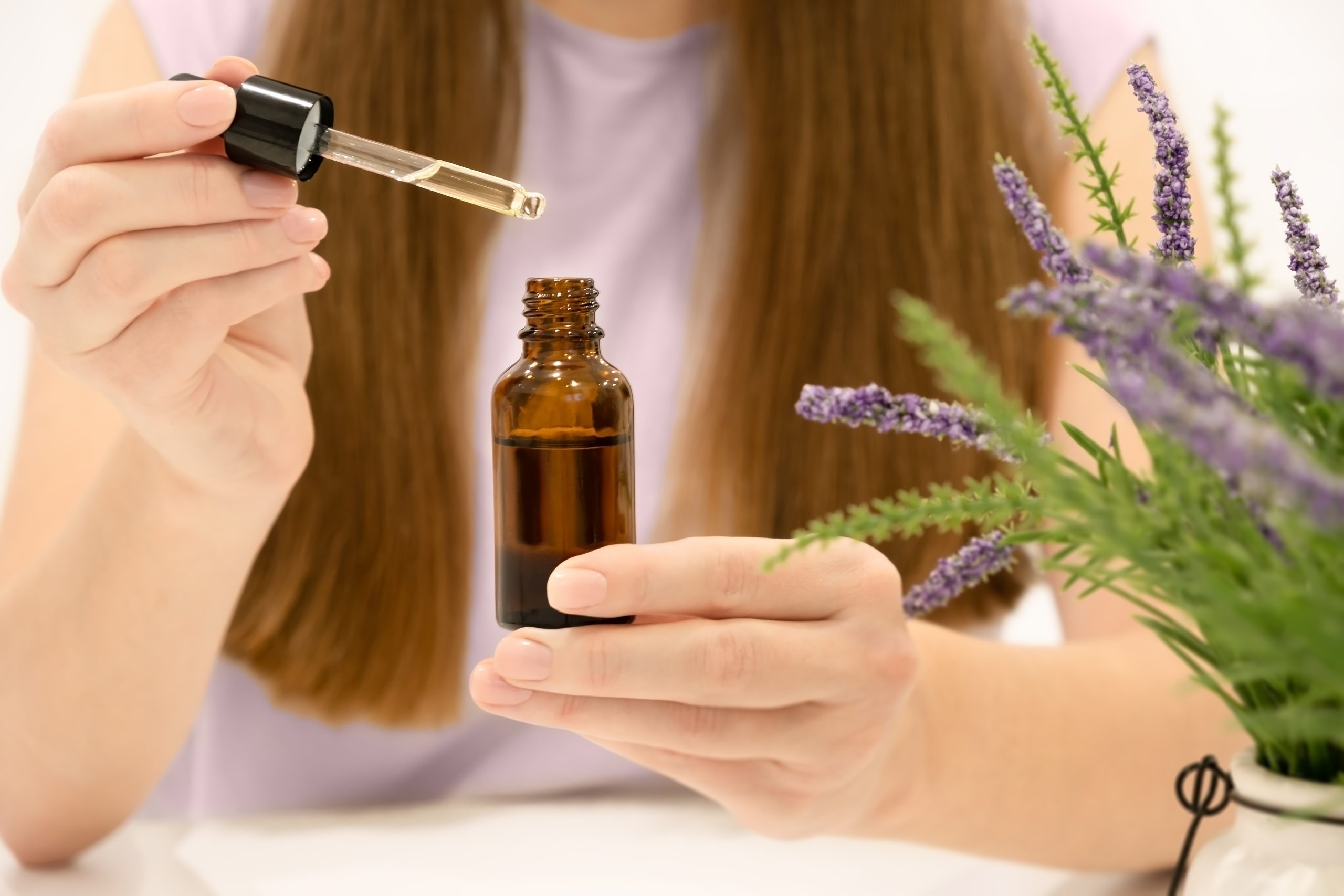
Benefits of Essential Oils in Women’s Daily Care
Using essential oils in feminine care can bring benefits both physically and emotionally. Unlike chemical-based products, essential oils support the body’s natural processes without causing irritation or imbalance.
1. Maintains pH Balance
Essential oils, mainly when used with a mildly acidic carrier oil or water-based mixture, help maintain the natural acidic environment of the vagina. This plays a crucial role in preventing infections and unpleasant odors.
2. Natural Antimicrobial Protection
Oils like tea tree and lavender oil contain powerful antibacterial and antifungal properties, which are beneficial in preventing bacterial vaginosis, yeast infections, and other common vaginal issues.
3. Soothes Inflammation And Discomfort
Essential oils like chamomile and calendula can provide immediate relief if you experience itching, redness, or discomfort due to shaving, synthetic fabrics, or hormonal changes.
4. Increases Mental Peace
Taking care of yourself using essential oils is a form of self-love. The aromatherapy properties of oils like lavender or geranium can help reduce stress and improve mood.
5. Naturally Eliminates Odors
Essential oils mask odors and eliminate odor-causing bacteria, leaving you fresh and confident without any artificial fragrance.
Essential oils are not just a fashion trend but a powerful, natural-based medium that helps women maintain their health awareness.
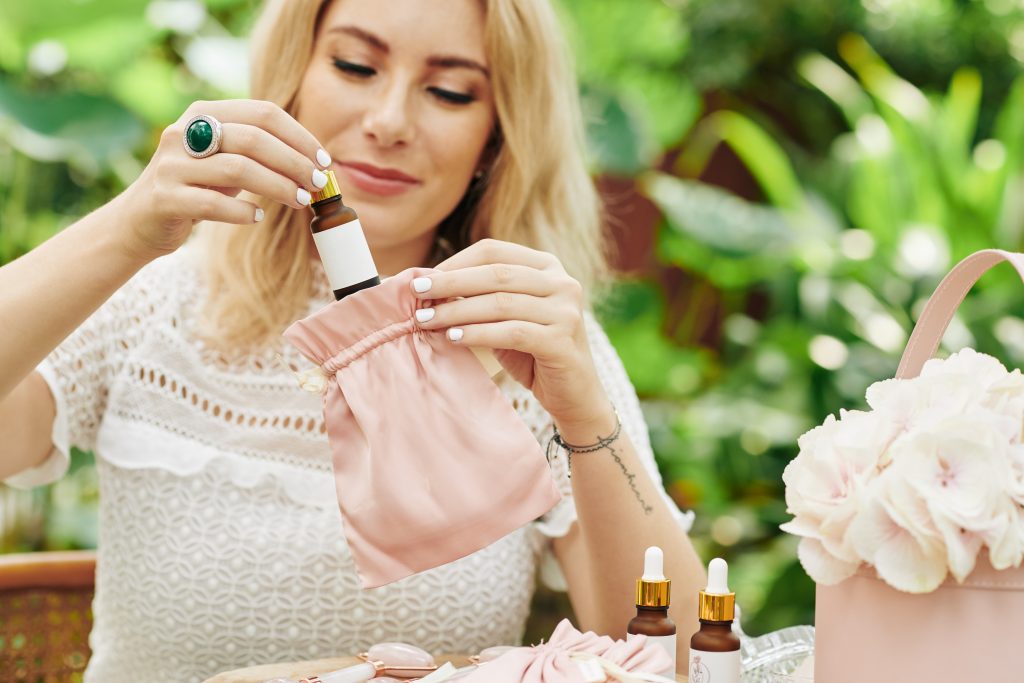
Some Common Mistakes: How to Use Essential Oils for Feminine Hygiene That Should Be Avoided
While it is essential to understand the correct guidelines for using essential oils in feminine care, it is also crucial to know which mistakes to avoid. Below are some common mistakes that, if avoided, can help prevent discomfort or harm.
1. Using In An Unrefined State
Essential oils should always be diluted with a carrier oil or used in a water-based application. Applying them directly to the vaginal or vulvar skin can cause severe irritation, burning, or allergies.
2. Using Additional Antibacterial Oil
While tea tree oil is highly effective, using it daily or in large amounts can disrupt the balance of the vagina’s natural microbiome, even killing off good bacteria.
3. Applying Oil Inside The Vagina
Essential oils are for external use only. The inside of the vagina is self-cleaning. Inserting oils there poses a risk of imbalance and chemical burns.
4. Ignoring Allergies or Skin Reactions
A Patch test is essential before full use. Some people may experience skin reactions to even a mild mixture, especially if they have sensitive skin.
5. Using Impure or Synthetic Oil
Not all essential oils are safe. Use 100% pure, organic, therapeutic-grade oils. Read labels carefully, and avoid oils with any additives or artificial fragrances.
If you can avoid these mistakes, your experience using essential oils will be safe, positive, and healthy.
Get Inspired With More Makeup and Beauty Content Here
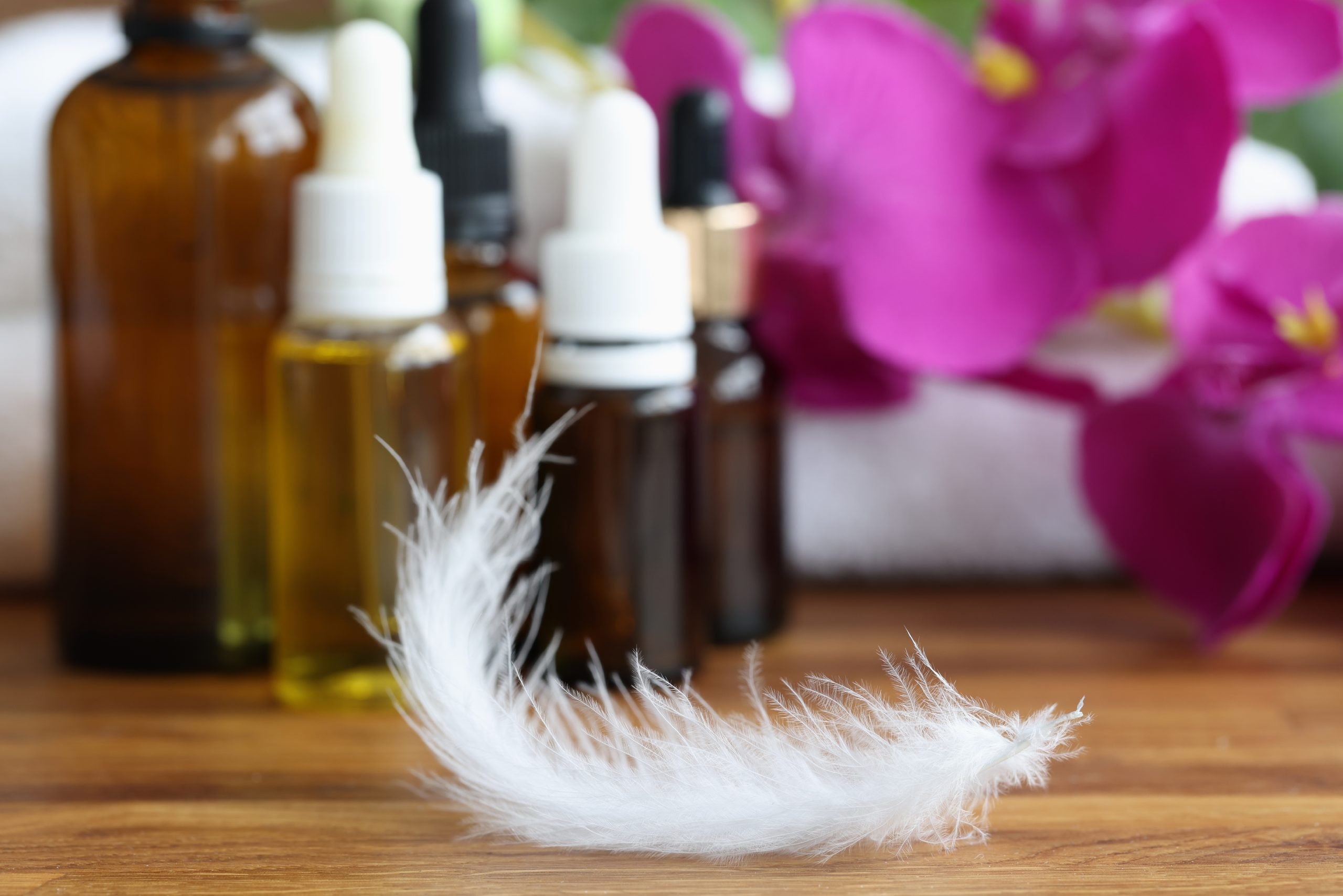
Final Thoughts: How to Use Essential Oils for Feminine Hygiene
Learning to use essential oils for feminine care is a natural, effective, and spiritually connected way to care. Proper knowledge and use will provide the tools to soothe skin irritations, prevent infections, maintain pH balance, and bring peace of mind without using chemicals or artificial fragrances.
The key to this care is the safe use of pure ingredients and understanding your body’s needs holistically. Whether you want to create a gentle DIY wash, prepare a sitz bath, or enjoy the benefits of aromatherapy, essential oils can help you confidently take care of your feminine health.
Give yourself time on this journey. What works for one woman may not work for another. Start slowly, listen to your body’s signals, and if in doubt, consult a holistic practitioner or a gynecologist experienced in alternative medicine.
Ultimately, embracing essential oils in women’s care is about caring for the body and cultivating a beautiful connection with nature. It reminds us that true wellness is a holistic experience encompassing body and mind.


